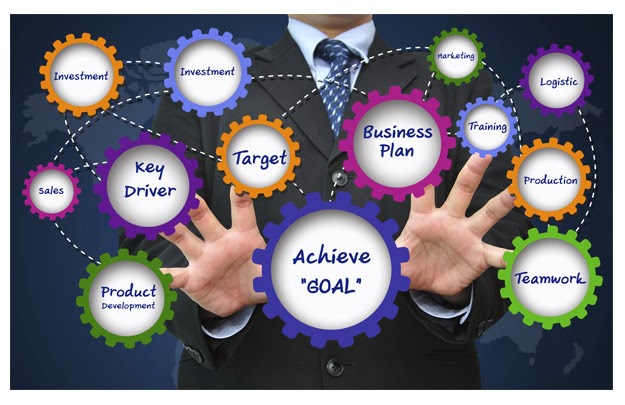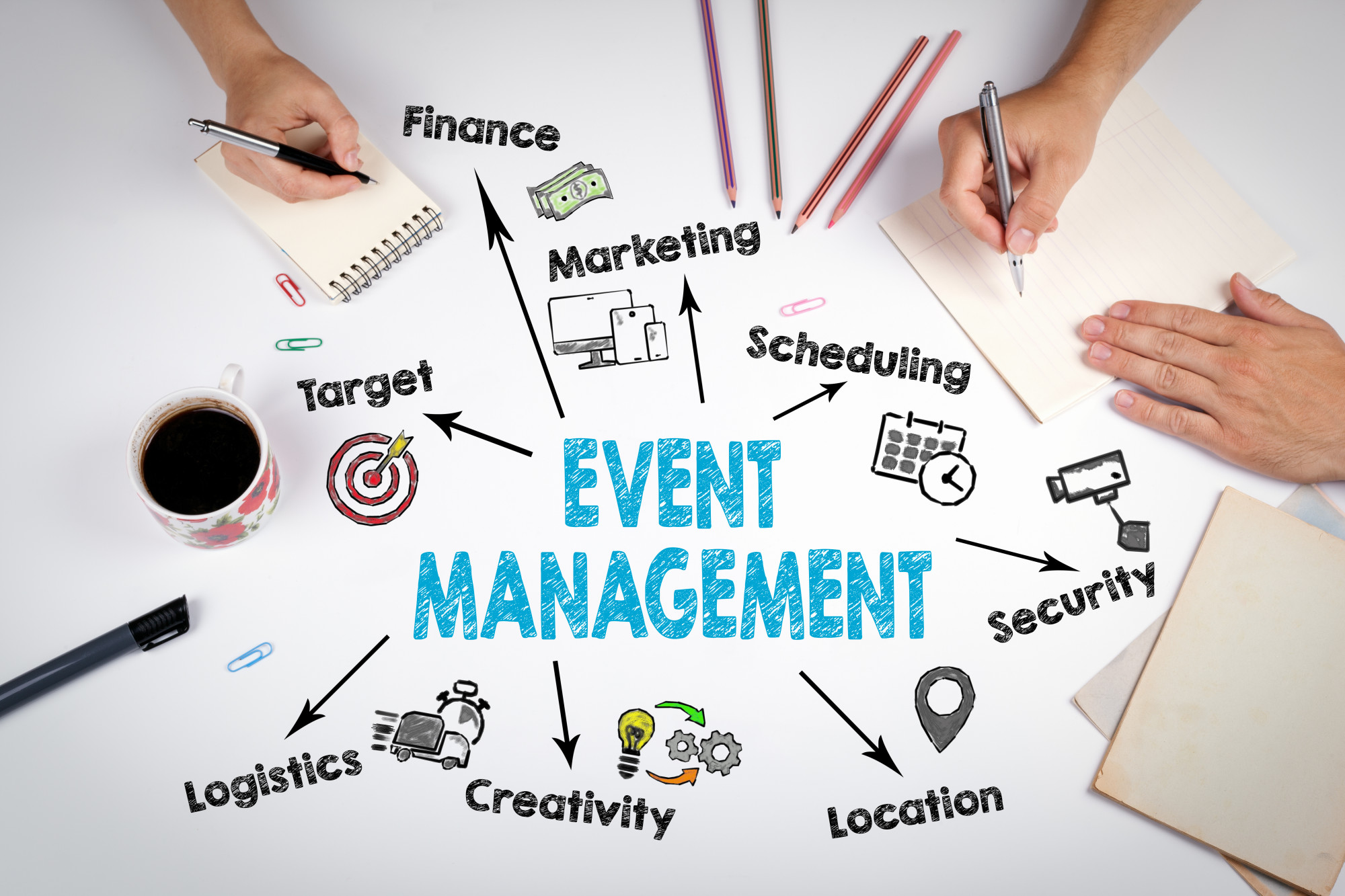Comparing charlotte event companies: How to decide for your needs
Wiki Article
A Deep Study How Event Management Functions to Produce Memorable Experiences
Event management is an intricate self-control that combines various components to craft unforgettable experiences. It calls for a clear understanding of the event's function and target market. Planners should navigate budgeting, logistics, and advertising to guarantee a smooth execution. Each part plays a crucial role in accomplishing the desired influence. The trip does not end with the event itself. There are understandings to uncover that can shape future undertakings.The Basics of Event Management
Effective event management includes a range of essential concepts that direct the planning and execution of successful occasions. At its core, it includes recognizing the event's objective, target market, and desired outcomes. Identifying the target group is essential, as it educates decisions related to material, advertising and marketing, and logistics.Budgeting is an additional basic facet, assuring that resources are designated effectively while fulfilling the event's objectives. This includes planning for unexpected costs that might develop.
Time management plays a crucial function, as event supervisors should develop a comprehensive timeline to work with various tasks and landmarks.
Additionally, reliable interaction amongst stakeholders, vendors, and team members is necessary to guarantee placement and avoid misconceptions.
Finally, threat management need to be taken into consideration, with backup plans in place to deal with potential obstacles, thereby improving the general experience for attendees and guaranteeing a smooth execution of the event. (charlotte event companies)

Secret Duties in Event Preparation
In event preparation, understanding key roles is essential for successful implementation. The event organizer is accountable for supervising logistics and making certain all elements straighten with the vision. Furthermore, reliable supplier management is vital for maintaining high quality and fostering strong partnerships throughout the planning procedure.Event Organizer Obligations
An event planner coordinates the intricate elements of event preparation, making sure seamless execution from conception to conclusion. They are accountable for conceptualizing the event style, setting budgets, and developing timelines to keep the job on course. Coordination with stakeholders, consisting of customers, venue supervisors, and volunteers, is vital to line up assumptions and help with interaction. The planner additionally supervises logistics, such as food catering, transport, and technology needs, making certain all elements operate sympathetically. They perform website check outs, handle timetables, and troubleshoot problems that might occur during the event. Post-event, the coordinator evaluates the event's success, gathering feedback and assessing results to inform future projects. This multifaceted duty requires solid business abilities, focus to information, and efficient interpersonal communication.Vendor Management Basics
Guiding via the landscape of supplier management is necessary for effective event planning. Effective supplier management involves determining, choosing, and working with vendors who offer essential services, such as event catering, audiovisual support, and decor. Event coordinators need to keep strong interaction with suppliers to assure that all facets line up with the event's vision. Key functions include the vendor manager, who supervises contracts and arrangements, and the logistics coordinator, liable for on-site configuration and execution. It's critical to establish clear expectations and timelines, promoting a collective environment that improves the general experience. By focusing on these elements, event coordinators can browse potential obstacles, guaranteeing that every information adds to a smooth and remarkable event.Crafting a Vision: Principle Advancement

As soon as a vision is established, it comes to be necessary to equate it into actionable parts. This includes defining the environment, selecting proper venues, and determining the event's design. Working together with stakeholders, including sponsors and companions, better improves the idea, click for source making sure that all events share a merged understanding of the event's objective. Inevitably, a well-developed vision not just improves participant interaction yet additionally sets the stage for remarkable experiences that resonate long after the event wraps up.
Budgeting and Resource Appropriation
With a clear vision in location, the following action in event management entails careful budgeting and source appropriation. This essential stage warranties that all needed elements are moneyed and aligned with the event's goals. Event supervisors begin by approximating expenses related to location option, wedding catering, home entertainment, and marketing. They develop a thorough spending plan that describes each category, enabling openness and liability.Resource allotment expands past funds; it additionally incorporates personnels. Determining team functions, responsibilities, and timelines is essential to guarantee efficiency. Event managers need to likewise take into consideration backups for unanticipated expenses or changes in range, developing a buffer within the budget plan.
Prioritizing investing on components that enhance guest experiences is crucial. By purposefully allocating sources, event managers maximize effect while maintaining monetary control. This regimented strategy not just cultivates effective events however also develops reliability and trust with stakeholders and individuals.
Logistics: The Backbone of Event Execution
While budgeting prepares for an occasion, logistics act as its backbone, ensuring that every aspect is implemented efficiently and efficiently. charlotte event companies. This includes a vast array of tasks, consisting of location option, transportation plans, and devices procurement. Reliable logistics management needs careful preparation and coordination to assure that all aspects straighten with the event's timeline and purposesTrick components of logistics consist of stock management, where materials and products are tracked to stop shortages, and staffing, which includes recruiting and training personnel to handle numerous tasks. Interaction is also critical, as it facilitates partnership amongst suppliers, sponsors, and the event group.

Advertising And Marketing and Promo Techniques
Efficient advertising and marketing and promo approaches are important for taking full advantage of presence and interaction at an event, as they create rate go now of interest and enjoyment among prospective participants. Event managers utilize a mix of traditional and electronic marketing methods to reach their target audience. Social network systems, email campaigns, and targeted advertisements are typically utilized to produce buzz and foster neighborhood communication. Cooperations with influencers or market leaders can enhance reputation, while involving material such as video clips and reviews can resonate with potential attendees.In addition, leveraging event-specific hashtags and creating shareable graphics encourages organic promotion among guests. Early bird ticket deals and exclusive promos can incentivize enrollment, in addition enhancing passion. In addition, a properly designed web site that provides easy navigation and clear information regarding the event can boost the user experience. By implementing these advertising and promotion strategies, event supervisors can ensure greater presence and eventually create an unforgettable experience for all individuals.

Determining Success: Comments and Evaluation
Success in event management depends upon robust comments and evaluation mechanisms. These procedures are essential for establishing the efficiency of an event and identifying locations for improvement. By gathering input from guests, coordinators can assess satisfaction levels, comprehend choices, and determine overall effect. Studies and meetings function as beneficial devices for collecting measurable and qualitative information, permitting for comprehensive evaluation.Additionally, evaluating key performance signs (KPIs) such as presence prices, involvement degrees, and return on financial investment (ROI) provides a clearer image of event success. Post-event debriefing sessions with the planning team also contribute understandings, promoting a culture of continuous improvement.
Ultimately, a methodical approach to feedback and examination not just improves future occasions yet also strengthens relationships with stakeholders. By applying these strategies, event managers can develop remarkable experiences that reverberate with participants and drive continuous engagement.
Often Asked Questions
Just How Do Event Supervisors Manage Unexpected Challenges Throughout an Occasion?
Event managers attend to unforeseen challenges by remaining calm, evaluating the situation, and carrying out backup strategies - charlotte event companies. They connect successfully with their group, adjust promptly, and focus on options to assure the event continues efficiently and successfullyWhat Innovation Tools Are Necessary for Modern Event Management?
Crucial modern technology tools for modern event management consist of event registration software program, project management applications, guest interaction systems, and analytics devices. These resources improve procedures, enhance communication, and boost overall event experiences for coordinators and participants alike.How Do Cultural Differences Effect Event Planning and Implementation?
Social distinctions greatly influence event preparation and execution. They impact themes, custom-mades, communication designs, and expectations, demanding customized methods to ensure inclusivity and regard, inevitably shaping the total experience and success of the event.What Are the Moral Factors To Consider in Event Management?
Honest considerations in event management incorporate transparency, sustainability, cultural level of sensitivity, and inclusivity. Organizers have to focus on fairness, respect diverse target markets, reduce ecological effect, and assurance availability to develop liable and remarkable experiences for all participants.How Can Sustainability Be Integrated Into Event Planning?
Sustainability can be integrated into event planning by using green materials, reducing waste, sourcing neighborhood vendors, applying carbon offset programs, and advertising digital solutions to decrease paper usage, thereby improving ecological awareness within straight from the source the event's structure.Report this wiki page